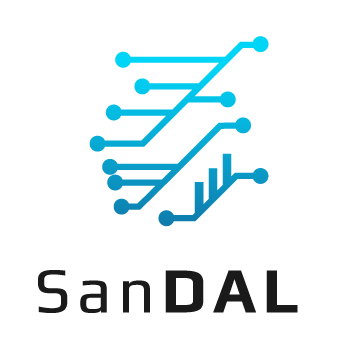The SanDAL project supported the creation of a new Master on Data Science at the University of Luxembourg starting in September 2021. Based on a multidisciplinary approach, the Master’s programme will train students in data analysis, modelling and management, and prepare them to work in areas as artificial intelligence, cloud computing, machine and statistical learning or big data.
Innovative and interdisciplinary programme
The Master on Data Science, which will be hosted at the Faculty of Science, Technology and Medicine (FSTM), will train carefully selected students in a multidisciplinary approach. The Master’s programme will build on existing synergies between the University’s disciplines and two of its research centres, the Luxembourg Centre for Systems Biomedicine (LCSB) and the Centre for Security, Reliability and Trust (SnT). Teaching and research activities will be led by renowned academics and researchers from Luxembourg and abroad, who will guide students through the many techniques of data science. In parallel, invited industry experts will help students solve industry-related problems.
“The Master’s programme covers many aspects of data science, including data mining, data processing, data visualisation, statistical modelling and database management. Particular emphasis is placed on machine learning and deep learning techniques and their applications to life sciences, medicine and physics. The pedagogical approaches are varied and based on the practice of data science in each of these disciplines”, explains Prof. Yannick Baraud, course director of the Master and SanDAL coordinator.
Data scientist, a unique profile
Data scientists are trained as both mathematicians and computer scientists. This profile makes them the preferred choice for facing the new challenges of the digital transformation.
Data scientists support decision-making, business modelling and innovation, but are also instrumental to provide legally responsible data management since improperly managed data can easily become a great liability.
“This new programme is an exciting development. It builds on the recent recruitment of excellent researchers in data science, including statistics and machine learning, and will allow the Faculty to better support the Luxembourg economy by attracting and training talented students in this dynamic field”, adds Prof. Jean-Marc Schlenker, Dean of the FSTM.
Industrial and commercial data, key economic drivers
As the fourth industrial revolution unfolds, the global economy and the job market are undergoing fundamental changes. As companies embrace digital transformation, as data sets grow in size and complexity and the opportunities linked to smart connected objects evolve, economic players require skilled data scientists. For sectors such as telecommunications, finance, retail or marketing, data experts are a necessity while sectors as agronomy and transport increasingly seek skilled data experts.
The European Data Strategy predicts that in the next four years the European data economy will account for 6% of the EU’s GDP (830 million euros) and that the number of data professionals on its labour market will have risen from 6 million to 11 million.
On the national level, Luxembourg embraces the process of digital transformation, and the Master of Data Science aligns with the country’s strategy and ambition of a digital nation. “Helping to drive digital innovation and development is one of the strategic priorities of the University, both in its research and its teaching activities, states Prof. Stéphane Pallage, Rector of the University. “This is in line with our willingness to explore and address the opportunities and challenges created by the digital revolution. The new Master’s programme is an important element in the implementation of our strategy to grow the pool of promising students and highly skilled researchers at the university and in the region.”
Data science is also one of intensive research. Graduates of the Master will be trained to go beyond the standard data analyses and model programming, to innovate and improve. For graduates entering the job market, the Master will provide a ticket to choose their future career path. For students wishing to continue an academic career, the Master’s training will prepare them to pursue a PhD in mathematics, computer science or computational sciences.
More information at mads.uni.lu

